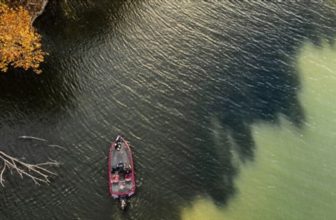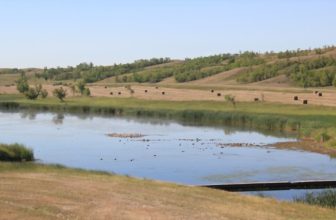
Massachusetts Fishing License
If you’re planning on fishing in Massachusetts, you’ll need a fishing license. Whether you’re a seasoned angler or a beginner, obtaining a Massachusetts fishing license is a vital step before you hit the water.
Not only is it required by law, but it also helps support the state’s efforts to preserve and manage its aquatic resources.
There are several types of fishing licenses available in Massachusetts, depending on your age, residency status, and the type of fishing you plan to do. From freshwater to saltwater fishing, there’s a license for everyone.
With a Massachusetts fishing license in hand, you can explore the state’s diverse waterways and cast your line for bass, trout, salmon, and other species.
So, let’s dive into everything you need to know about obtaining and using a Massachusetts fishing license.
Why You Need a Massachusetts Fishing License
If you’re planning on fishing in Massachusetts, you’ll need to obtain a fishing license to ensure that you’re adhering to state regulations and preserving the health of local fish populations. Fishing without a license can result in fines and other penalties, so it’s important to obtain one before casting your line.
The Massachusetts Division of Marine Fisheries issues fishing licenses that are valid for one year from the date of purchase. You can purchase a license online, through a licensed agent, or by mail. The fees for fishing licenses vary depending on your residency status and the type of license you need.
Having a fishing license also helps support conservation efforts in Massachusetts. The fees collected from fishing licenses go towards funding programs that protect and enhance the state’s fisheries, as well as enforcing regulations and promoting sustainable fishing practices.
So, not only is obtaining a fishing license a legal requirement, it’s also a way to contribute to the preservation of the state’s natural resources.
Types of Massachusetts Fishing Licenses
You can choose from a variety of licenses depending on how often you plan to go out on the water. The most common license is the Annual Resident Fishing License, which allows you to fish in Massachusetts waters for a full year.
If you plan on fishing for just one day, there is also a 1-Day Resident Fishing License available for purchase.
If you are a non-resident, there are also options for you. The Annual Non-Resident Fishing License is available for those who plan on fishing in Massachusetts waters for a full year. There is also a 3-Day Non-Resident Fishing License available for those who plan on fishing for a shorter amount of time.
Finally, there is a Lifetime Fishing License available for both residents and non-residents. This license allows you to fish in Massachusetts waters for the rest of your life, making it a great investment for avid fishermen and women.
No matter which license you choose, make sure to always have it with you while fishing in Massachusetts waters.
How to Obtain a Massachusetts Fishing License
To get your hands on the necessary permit, head down to the local tackle shop or outdoor gear store. You can also purchase a Massachusetts fishing license online through the official MassFishHunt portal.
Before you apply, make sure to have your personal information and payment method ready. To apply for a fishing license online, simply create an account on the MassFishHunt portal. Once you have an account, you can purchase your license and begin fishing right away.
Keep in mind that there are different types of licenses available, so choose the one that best fits your needs. After purchasing your Massachusetts fishing license, make sure to keep it with you at all times while fishing.
This license is not only a legal requirement, but it also helps fund conservation efforts and keep the waters clean for future generations. So, enjoy your time on the water, but also remember to be a responsible angler and respect the environment.
Rules and Regulations for Fishing in Massachusetts
Navigating the rules and regulations of fishing in the Bay State can be overwhelming, but it’s important to understand them in order to preserve the beauty and sustainability of our waterways.
Massachusetts has strict laws concerning fishing, and it’s crucial to follow them to avoid fines or even imprisonment.
First and foremost, anglers must have a valid Massachusetts fishing license to fish in the state’s freshwater or saltwater bodies.
Additionally, there are specific size and catch limits for different species of fish, and certain areas may be off-limits to fishing.
Another important rule to note is that fishing gear must be inspected and cleaned to prevent the spread of invasive species.
Boats and other watercraft must also be inspected before launching to prevent the spread of harmful plants and animals.
It’s also important to note that fishing is prohibited in certain areas to protect endangered species or habitats.
Lastly, anglers must abide by catch and release laws for specific species, such as striped bass, to help maintain healthy populations.
In order to ensure a safe and enjoyable fishing experience, it’s important to familiarize yourself with the rules and regulations of fishing in Massachusetts.
By obtaining a valid fishing license, following catch limits, inspecting gear and watercraft, respecting prohibited areas, and practicing catch and release, you can help protect our state’s natural resources for future generations to enjoy.
Remember that fishing is not just a hobby, but a responsibility to preserve our waterways and the diverse ecosystem they support.
Tips for a Successful Fishing Trip in Massachusetts
Get ready for a successful fishing trip in the Bay State by packing the right gear and researching the best spots to cast your line. Massachusetts offers a variety of freshwater and saltwater fishing opportunities, each with their own unique challenges and rewards.
Before you head out, make sure to check the weather forecast and tides to ensure the best conditions for your trip. When it comes to gear, bring a variety of lures and baits to appeal to different fish species. A good quality rod and reel, along with a sturdy fishing line, will help you reel in your catch.
Don’t forget to pack sunscreen, insect repellent, and plenty of water to stay hydrated. It’s also important to respect the environment by properly disposing of any trash and following catch-and-release guidelines if necessary.
To increase your chances of success, consider hiring a local fishing guide who can share their expertise and take you to the best fishing spots. Alternatively, do your research online or ask fellow anglers for recommendations.
Whether you’re fishing for striped bass in Cape Cod or trout in the Berkshires, Massachusetts offers a diverse range of fishing experiences for all levels of anglers. So, grab your gear, hit the water, and enjoy the thrill of the catch.
Frequently Asked Questions
Can out-of-state residents apply for a Massachusetts fishing license?
Yes, as an out-of-state resident, you can apply for a Massachusetts fishing license. However, the fees and requirements may differ from those for in-state residents. Check with the Massachusetts Department of Fish and Game for more information.
Are there any age restrictions for obtaining a Massachusetts fishing license?
You must be at least 15 years old to obtain a fishing license in Massachusetts. Age restrictions aim to ensure that children can fish safely and responsibly, while also protecting fish populations and habitats.
Is there a limit on the number of fish that can be caught per day in Massachusetts?
You are allowed to catch a certain number of fish per day in Massachusetts, depending on the species. Some have specific size limits and bag limits, so make sure to check the regulations before fishing.
Can a Massachusetts fishing license be used for saltwater and freshwater fishing?
Yes, your fishing license in Massachusetts allows you to fish in both saltwater and freshwater. However, certain species may have specific regulations or restrictions, so it’s important to check before you cast your line.
Are there any specific areas in Massachusetts where fishing is prohibited?
You cannot fish in certain areas in Massachusetts, including designated conservation areas, wildlife sanctuaries, and some private property without permission. Always check local regulations and restrictions before fishing in a new area.
Conclusion
So now you know why it’s important to have a Massachusetts fishing license and the different types available to you. But how do you obtain one? It’s easy! All you need to do is visit the Massachusetts Department of Fish and Game website or a licensed vendor and follow the steps to purchase your license.
Remember, fishing in Massachusetts comes with rules and regulations that are in place to protect the environment and ensure fair practices. Knowing these rules and regulations will make for a more enjoyable and successful fishing trip.
So don’t forget to brush up on them before you hit the water. With your Massachusetts fishing license in hand and a good understanding of the rules, you’re ready to embark on your next fishing adventure!







